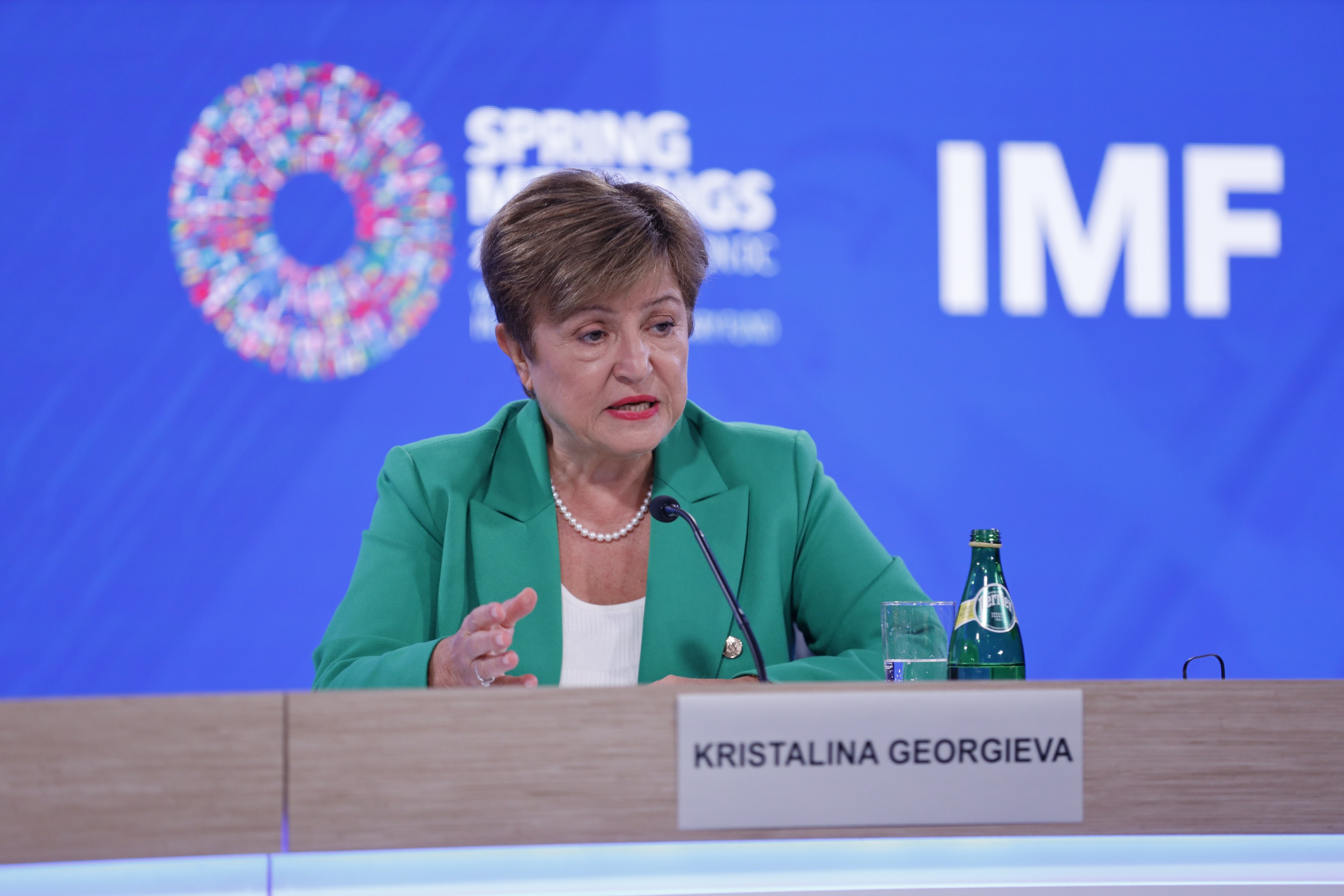China Should Boost Consumption To Offset Slowdown And Trade War With Us, Imf Says

International Monetary Fund officials urged China on Thursday to boost domestic consumption, address its property sector crisis and prioritise service sectors as ways to offset its economic slowdown and its trade war with the US.
In a briefing during the fund’s spring meeting in Washington, Kristalina Georgieva, the IMF’s managing director, said that Beijing should rely less on exports and invest more in stimulating domestic demand. She also called for “strengthening social protections” to reduce consumer savings and encourage spending.
On Tuesday, the IMF revised China’s 2025 growth forecast down to 4 per cent, from 4.6 per cent, largely reflecting the effects of its trade dispute with Washington.
The IMF also downgraded the global economic growth forecast to 2.8 per cent for 2025, down half a percentage point from its projection in October, reflecting the continued strain of the US-China trade dispute that has disrupted global supply chains and placed pressure on emerging markets globally.
China is standing firm against US trade pressure despite softer rhetoric from US President Donald Trump and Treasury Secretary Scott Bessent this week.
Chinese companies have responded to tariffs by returning Boeing jets, reducing US soybean purchases and halting shipments to American buyers.
Chinese Commerce Ministry spokesperson He Yadong also insisted on Thursday that Washington must eliminate all “unilateral tariff measures” before any potential deal.
“The person who tied the bell must untie it,” He told reporters.
Georgieva said that the forecast for China’s economic growth could have been even more severe had Beijing not taken measures to incentivise the private market in recent weeks.
“We actually would have had not 0.6, but 1.3 per cent downgrade, if it wasn’t for the policy accommodation that China is already putting in place,” she said.
“Get the government to pull back from too much intervention in the economy, let the private sector function to its full capacity.”
Krishna Srinivasan, director of the IMF’s Asia-Pacific department, discussed structural problems the IMF said Beijing must address in the short term.
He noted that China’s economic slowdown was also tied to its distressed real estate market. “Ever since the beginning of the crisis in the property sector, consumer confidence has been tanking,” he noted.
“Beijing has taken action to help rehabilitate the property sector, but it’s not enough. There is still a whole issue of … housing which is unfinished, which needs to be addressed, the issue of triaging the developers and taking care of the unviable developers, et cetera.”
As Georgieva had, Srinivasan stressed the need for Beijing to bolster social safety nets. Expanding those protections, he contended, would help reduce precautionary savings and boost consumption.
“These take much more relevance now given the fact that China is being hit by huge tariffs,” he said.
“China would do well to rebalance its economy towards greater reliance on domestic demand.”
Thomas Helbling, deputy director of the IMF’s Asia-Pacific department, said there was a sense of “underappreciation” in China of services “as a source of growth”.
Sectors like healthcare, education, and financial services, he said, had been overlooked as key engines of productivity and long-term economic growth.
“These are critical for both boosting productivity and supporting the shift towards consumption-led growth,” he said.
With trade tensions growing, Georgieva noted that uncertainty was detrimental to the global economy, urging both China and the US to resolve their differences swiftly to avoid further damage.
“Without certainty, businesses do not invest, households prefer to save rather than to spend, and this further weakens prospects for an already weakened growth.”


